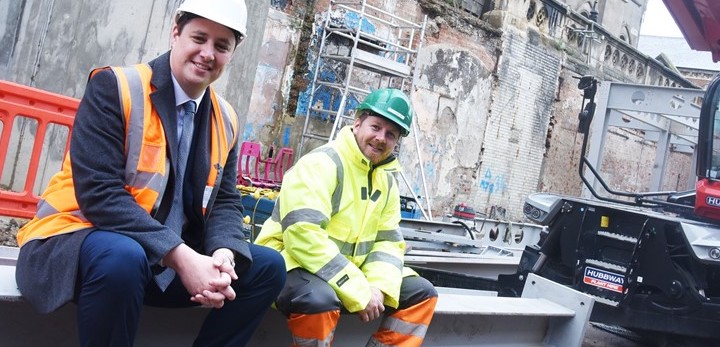Future of True North Brew Co secured, saving 325 jobs
Interest rates rise again
Stronger than expected first half for Belvoir Group
Streets Chartered Accountants covers tax topics, NICs, alcohol duty changes and Investment Zones in new news roundup
- if a UK VAT registration number is valid; and
- the name and address of the business the number is registered to…
‘Fairtrade Community’ status renewed in Hull
Rotherham set to agree £6.4m of funding to support economy
Ensuring that more residents benefit from a more inclusive local economy is at the heart of proposals set to be considered by Rotherham Council.
- Supporting Local Business
- People and Skills
- Communities and Place
BT Group’s flagship Sheffield office building reaches key milestone
R&D claims to come under greater scrutiny, as HMRC reveals £1 billion of ‘fraud and error’
Renewable energy projects to get more development cash from government
“Today’s increase will improve energy security and maximise the potential of the scheme. This will result in investment, a stronger renewables sector and growth to our economy.”
The increased funding combined with the introduction of annual auctions, will boost investments in Britain’s world-leading renewable industry, while strengthening the UK’s energy security, fostering growth in the country’s green industries and reducing exposure to volatile global gas prices. Energy Security Secretary Grant Shapps said the Russian invasion of Ukraine had made it plan that the UK had to do whatever was necessary to bolster the country’s energy security. Funding through our flagship Contracts for Difference scheme – the lifeblood of our renewables industry for nearly a decade – will help grow our economy by making Britain the first choice for investors in renewable energy projects and secure skilled jobs for future generations.“This will be the case for established technologies like solar, and new innovations like floating offshore wind and, alongside our backing for oil and gas, carbon capture and our revival in nuclear, will ensure we can help power more of Britain from Britain for decades to come.”
Today’s new funding for the current round (AR5) will mean:- An increased budget for established technologies such as solar and offshore wind – from £170 million to £190 million;
- An increase in the budget for emerging technologies such as floating offshore wind – up from £35 million to £37 million; and
- Maintaining £10 million ring-fenced budget for tidal stream projects












